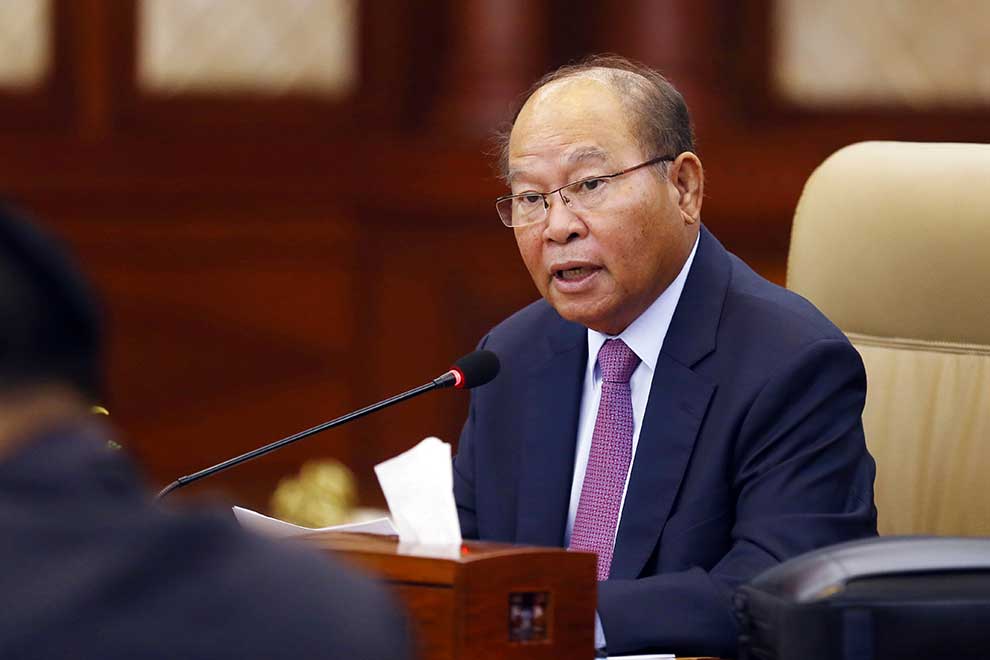
Health minister Mam Bun Heng speaks at an interministerial meeting held at the interior ministry in 2021. Hong Menea
Minister of Health Mam Bun Heng issued guidelines on strengthening the provision of health services in private health facilities after several recent incidents. He reminded all private facilities to respect the regulations that are in force and maintain a strong ethical code.
Bun Heng issued instructions on December 4, in conjunction with a number of regulations, for private health providers under the theme “strengthening the provision of health services in private health facilities.”
Bun Heng said that due to poor management and service provision in a small number of private health facilities, there have been several disappointing recent incidents.
“Those who commit unprofessional actions, display negligence in their management of a private facility or make serious medical errors will be disciplined by a professional committee, and may face legal consequences,” he added.
Along with the guidelines, the ministry annexed two documents on codes of conducts, namely Cambodia’s abortion law and law on the management of health professionals.
The ministry called on sub-national administrations and capital and provincial health departments to pay close attention to overseeing the provision of health care and the issuing of licenses and permits for private health services. The public was encouraged to examine health facilities to ensure they had the required qualifications and licenses.
Ouch Vuthy, president of the Cambodian Association of Virtuous Doctors, applauded the ministry’s action to tighten the quality of private health care. He said this would encourage facilities to pay more attention to their professionalism and ethics.
“Many individuals are focused solely on profits. Cutting corners to maximise income can result in increased risks to patients’ health. I call on all doctors to concern themselves with helping people, rather than thinking about their incomes,” he said.
“Treat them first and the money will come later. Another concern of my organisation is that some privately-owned pharmacies are stocking expired medicines,” he added.
He said the issue with some private clinics is that they do not comply with professional standards. In some cases, the doctors who are responsible for surgery treat patients and make their own decisions without consulting with their directors. Worse, some directors will order their staff to breach medical protocols and carry out procedures they are unqualified to perform.
Vuthy called on the health ministry and relevant institutions conduct regular unannounced inspections of private facilities.
Veng Kim You, a doctor at a health centre in Battambang province, said that the level of responsibility of private health facilities depends on the cost of services. Expensive clinics in the city, for example, provide modern medical services and well qualified doctors. Cheaper provincial clinics may have far more limited knowledge and facilities.
“In some cases, doctors who work at public hospitals open private clinics. When there are medical complications, they sometimes transfer their patients back to their state workplaces, thus shifting responsibility and avoiding blame,” he added.
He suggested that the government should have more effective monitoring mechanisms to ensure the professional practice and ethics of doctors in private clinics. This, along with additional training for doctors, would reduce corruption in the health sector.
Recently, there has been lively public discussion surrounding the standards of private health facilities following a case of a woman who was treated for the stillbirth of her 18 week-old foetus. Her treatment, at the Deum Angkrong Clinic and Maternity in Kampong Speu, led to serious complications.
The health ministry has ordered that the clinic be held accountable before the law for its negligence.











